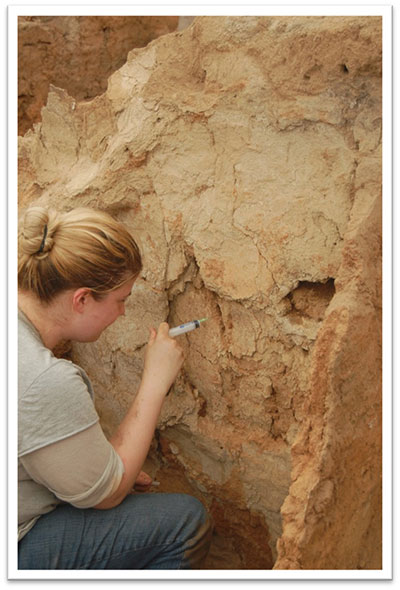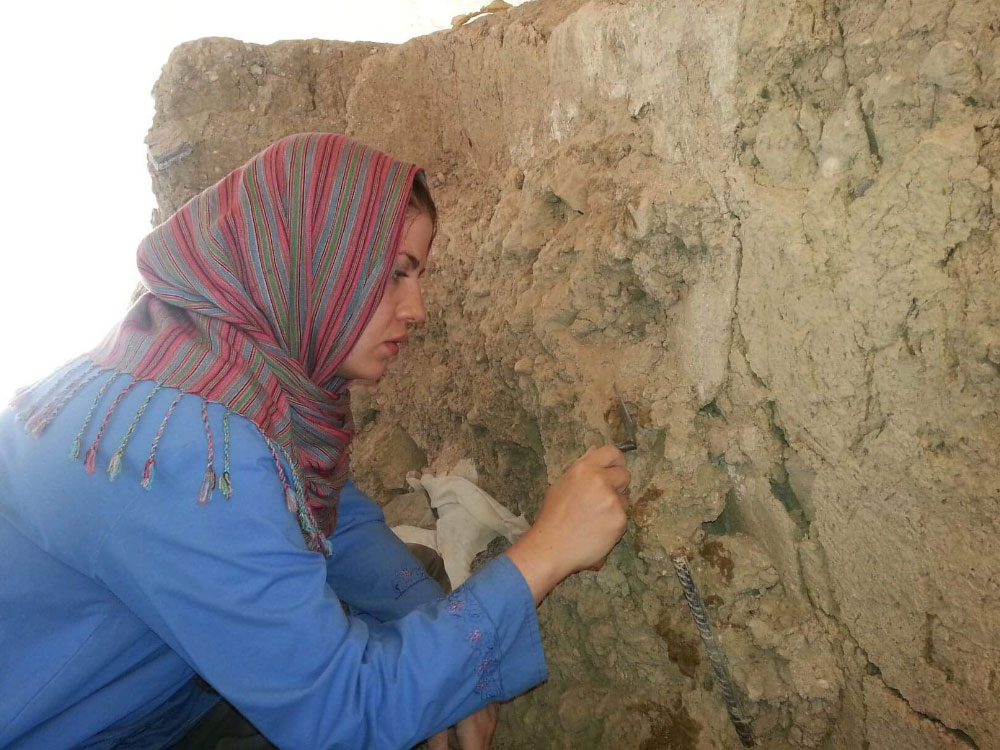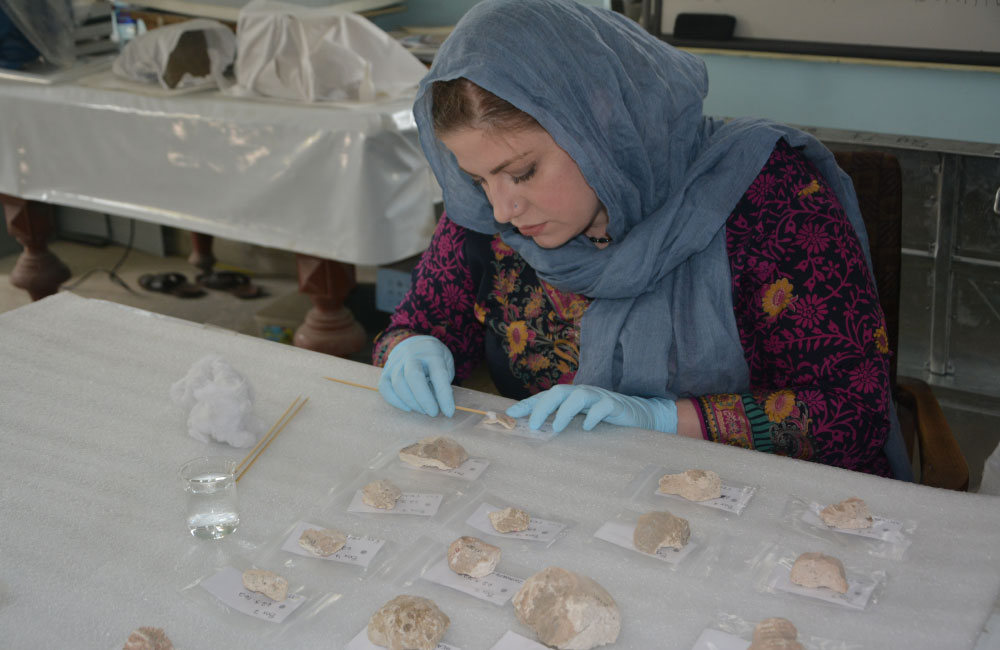
MINOT, N.D. – Amanda Watts works in a world of nuance.
“I love history and I have deeply seated trust issues,” the Minot State faculty member said. “History is written by the winners and the people who wrote stuff down, which is a fascinating filtration system of how we understand history. While this is interesting in its own right, I really like the stark juxtaposition of how these people actually lived. People lie, their garbage doesn’t.”
It was this fascination with the untold stories — what people from past eras actually ate and hid and didn’t write down — that first drew her to archeology.
“When we find archaeologic evidence, we have these anchored facts,” she said. “It is a huge piece in showing physical truth and how that can change the text and narrative.”
Learning to tell those stories also unfolds in the museums where artifacts are displayed, something students at Minot State will get a chance to learn about in Introduction to Museum Studies, being taught by Watts in the Spring 2023 semester.
“Linda Olson, art and professional communication chair, taught this class in 2019, and I’ve known her about 25 years,” she said. “During one of the rotations, there was water damage to some of the leather from the Native American collection. I was working in London and she was able to ask, what should I do?
“So, I was consulting for this class and now it’s fun to come back and actually teach it.”

Watts at the Mes Aynak on the Afghani/Pakistani border.
The studio course will include short lectures Wednesday mornings with hands-on learning at the Northwest Arts Center Friday afternoons.
“We will be working with the exhibitions, doing condition assessment for the permanent collection, designing our own installation, and having a fundraising party for the museum while still ethically caring for the collections,” Watts said. “They’ll learn fairly structured approaches to be able to manage the infinite possibilities and chaos. It’s a really complicated job, but being good at it makes you good at a lot of things, which is just really exciting and fascinating.
“The world is full of these kinds of ethical and logistical questions and quandaries that we deal with every day, in so many different professions.”
The class will be useful and rewarding to students in history, art, social sciences, and management, offering participants a better grasp on public communication and caring for an interpreting objects.
Following graduation from Boston University with her Bachelor of Arts in Archaeology, Watts first began answering these moral questions while working for the United State military.
“Those first couple years taught me the ethics of cultural heritage management and protection with the pragmatism of people who still have to live and function in places where people have lived and functioned for thousands of years,” she said. “There is a nuanced dance that’s very complicated. Every case is different. You have to know what questions you to need to ask, which adds several more layers of questions.”
It was deciphering questions and avoiding emergencies that Watts enjoyed most in the field and something she knew she could explore more by working in museums.

Watts working at the National Museum of Afghanistan in Kabul.
“Every time we had finds in the field, we had to know how to get them out of the ground without breaking them, how to clean them properly, and all those things were my favorite part,” she said. “I was working as a field archeologist in Egypt and knew I needed to be an object specialist. There were like 25 required undergraduate credits that I did not have so I came to Minot State.”
For the next year, the Minot native took classes in organic chemistry, art classes in drawing, painting, ceramics, and metal work, and learned the process of becoming a material scientist.
“It was essential to understand how those materials work. By understanding the techniques of making, I can understand what’s happening as things deteriorate,” Watts said. “The science is super useful, but actually making items in the art department was 90% of what I needed for understanding those materials and how they work. You need to build it to watch it fall apart.”
Today, Watts teaches a variety of courses in art, humanities, and English on campus while consulting for museums and finding time for archeological digs around the world.
“Human remains are my specialty, and I go around and do work for smaller museums when somebody finds human remains in their collections,” she said. “We write a human remains storage policy, an access policy, and try to answer those hard questions.
“I’ve worked at museums in Afghanistan and England and Italy and Egypt, North Africa, the United States, big ones, small ones. And everywhere — even with what we teach at Minot State — the questions come down to pragmatism, to ethics, to nuance.”
Minot State University’s Spring 2023 semester registration opens for all currently enrolled MSU students Wednesday, Oct. 26. Virtual new student advising will be held Nov. 7-Dec. 16 and Jan. 3-6. To apply to Minot State visit askMSU.com/apply.
About Minot State University
Minot State University is a public university dedicated to excellence in education, scholarship, and community engagement achieved through
rigorous academic experiences, active learning environments, commitment to public service, and a vibrant campus life.
Published: 10/26/22




